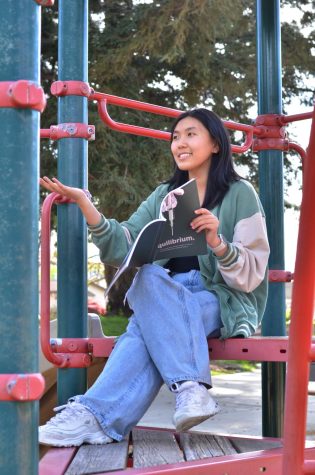Humans of Harker: Just an academic game
Deven utilizes debate as a tool to understand the different sides of an argument
“People think about debate as some holier than thou activity where two white dudes in suits talk really pompously and get out their points. Debate is high schoolers chugging Red Bulls at 10 p.m. because the tournament doesn’t end until midnight, they both smell, [since] they don’t have time to shower in the morning, and they probably haven’t eaten,” Deven Shah (12) said.
From debating about building a space elevator to persuading others that global warming may benefit the planet, Deven Shah (12) has done it all. As an avid debater, he has taken on many different and sometimes controversial positions. Along the way, debate spurred his critical thinking skills and enhanced his understanding of the world.
To Deven, debate has always been just a game. He disagrees with the notion that debate is a grand, formal speaking exercise.
“People think about debate as some holier-than-thou activity where two white dudes in suits talk really pompously and get out their points,” Deven said. “Debate is high schoolers chugging Red Bulls at 10 p.m. [Since] the tournament doesn’t end until midnight, they both smell, [because] they don’t have time to shower in the morning. And they probably haven’t eaten.”
Through Civil Discourse Club, a group that allows students to gather in a safe space to discuss politics, Deven discovered that meaningless debate is most likely something that is hurting this country more than it is helping.
“People say a lot of things that have no substance,” Deven said. “When you do debate, you can realize when something has no substance, and you can essentially figure out, ‘Okay, everything you just said was the same point made over and over again, just in different words.’”
Upper school history teacher Donna Gilbert, who taught Deven in his sophomore and senior years, describes Deven as a thoughtful person who carefully chooses his words before speaking out loud.
“He [is] somebody that engages in argumentation [not] for argumentation sake [but] because it matters to him — not just for sport, but to try to truly understand things,” Gilbert said.
Deven enjoys the focus and concentration that debate requires. While debating, Deven doesn’t look, do or think about anything else. Instead, he immerses himself in trying to dig deeper into the arguments that support his position.
“When I’m in the zone, I think about, ‘Okay, what is he thinking?’” Deven said. “‘What is the strategy that he’s going for? How do I counter that strategy? How do I answer particular arguments? How do I effectively allocate my prep time?’”
While competing, Deven often underestimates his success. This mindset gives him a feeling of winning something extra when he wins, whereas when he loses, he doesn’t feel surprised. In Deven’s junior year, when he went to Nationals, a large tournament that attracts high school students nationwide to compete, he had come off of a few strong tournaments. Although Deven did not start off with one of the top seeds at Nationals, he managed to win all eleven rounds, ultimately defeating the higher-ranked seeds.
“The interesting thing about winning Nationals was [that] I didn’t expect it all,” Deven said. “I’d come into that tournament thinking if I get even top eight, top four, quarterfinals, semifinals, I’ll be okay. It just so happened [that] I crushed everyone at that tournament. I did not expect to win and nobody expected me to win. But then I beat people. When I won that tournament, I was over the moon. I didn’t do any work for a couple [of] days. I was extremely happy.”
Winning Nationals is one of Deven’s biggest accomplishments in his debate career so far, which first started out in sixth grade after attending a summer program. He was instantly attracted to debate by the immense amount of research involved in the preparation.
“It was the one activity to me where it felt like the amount of preparation you did was exactly proportional to how much you win, so even if someone was way better than you, if you prepared more, you [could] beat them,” Deven said.
Deven admits that he is not necessarily always the most persuasive person, and it was one of the skills that he needed to work hard at. However, by coming up with strong, well-grounded arguments, he was able to have an advantage over his opponents.
Vayun Tiwari (12), Deven’s childhood friend, admires Deven for having the courage to speak up and stand up for himself and the ones around him.
“He isn’t afraid to have a different opinion and … to express that different opinion,” Vayun said. “So because of that, I have a lot of respect for him because he isn’t afraid of what other people will think of what he says. My favorite memory with him [is] going on walks around the neighborhood and talking about stuff. He will tell you the truth straight up, like if something is a good or bad idea and because of that, he is someone I can easily go to advice for.”
Besides helping Deven acquire research and argumentative skills, debate has also shaped the type of person he is around others: someone who can use his words in a wise and put-together manner to communicate his ideas.
Close friend Arjun Dixit (12) describes Deven as having the best of both worlds: an incredibly driven, intelligent individual but also someone that he can joke around with.
“We’re able to have some really light-hearted, comedic, everyday conversations, but at the same time, we can have some really deep, intellectual discussions all within one conversation,” Arjun said. “That makes him unique as a friend.”
Past the importance of persuasive argumentation and confident expression, Deven values the simplicity of debate above all.
“One of the things I realized [from] debate was that if you think about it as just a game and nothing more, that’s when you get the most out of it — it’s just a really fun academic game,” Deven said.
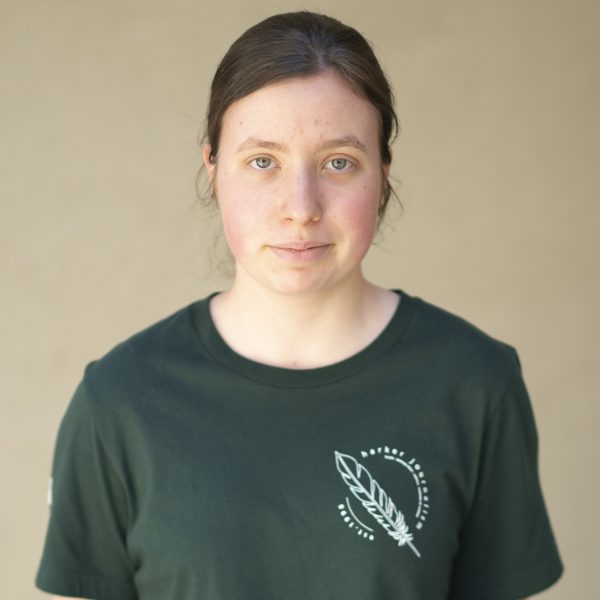
Emma Milner (11) is the co-sports editor for Harker Aquila and the Winged Post, and this is her second year on staff. This year, Emma wishes to maintain...

Esha Gohil (12) is the co-editor-in-chief of Humans of Harker and the photo editor of Harker Aquila. This is her fourth year on staff, and this year she...































![Setter Emma Lee (9) sets the ball to the middle during the match against Pinewood on Sept. 12. “[I’m looking forward to] getting more skilled, learning more about my position and also becoming better friends with all of my teammates, Emma said.](https://harkeraquila.com/wp-content/uploads/2023/09/DSC_4917-2-1200x795.jpg)








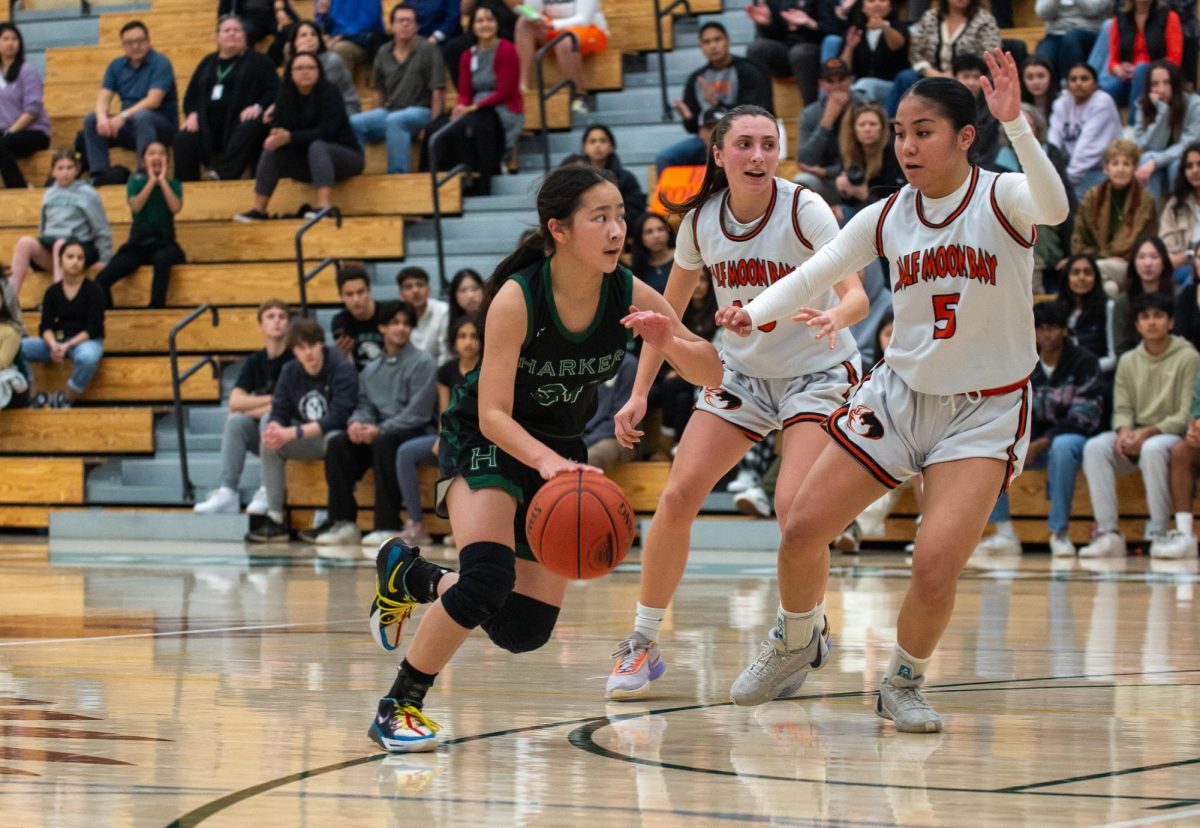

























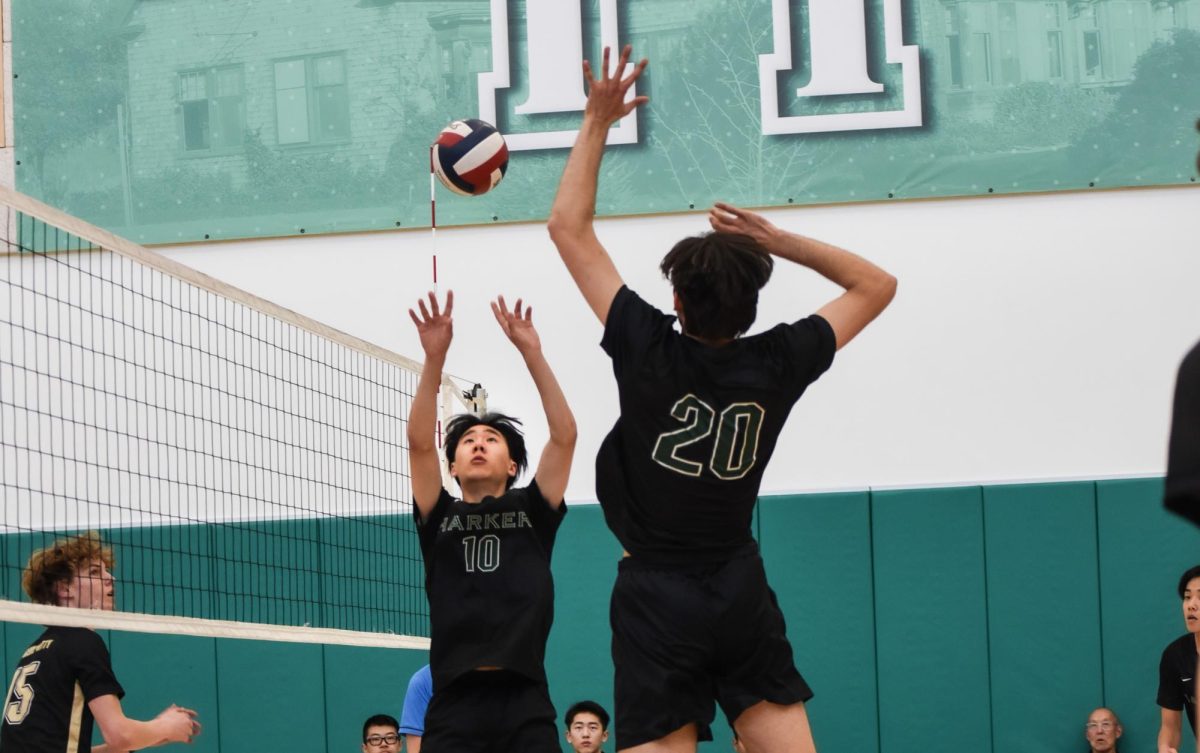
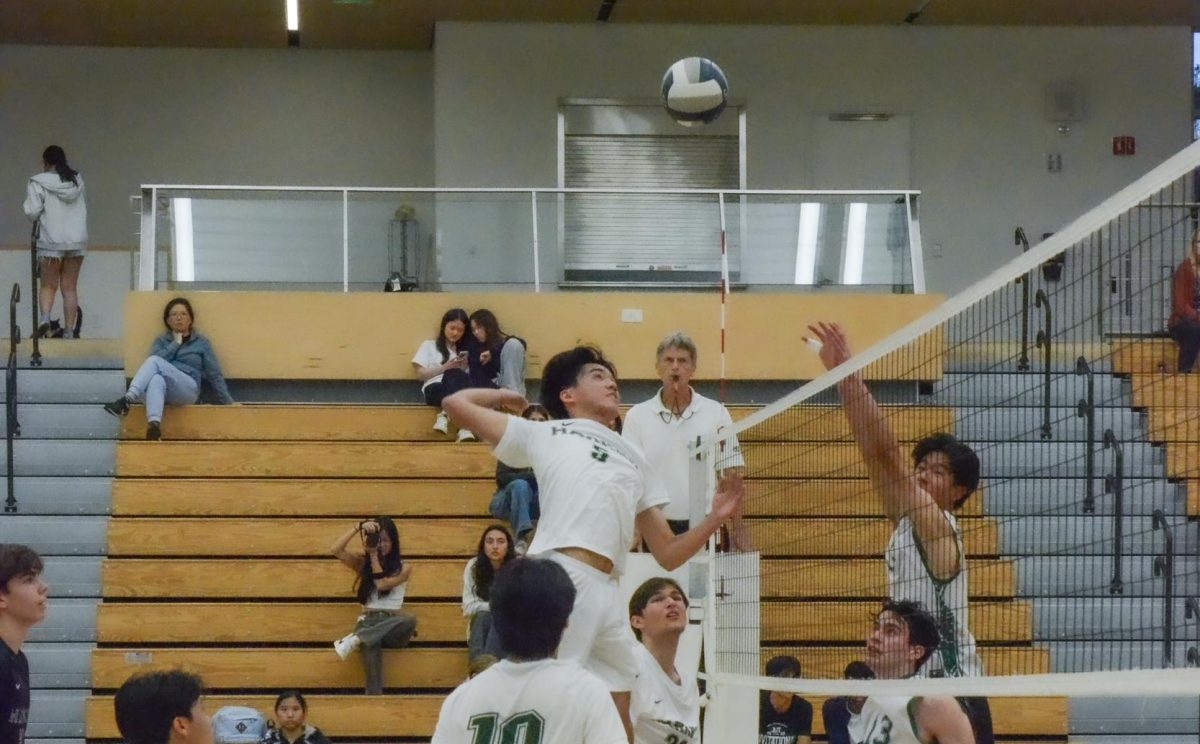
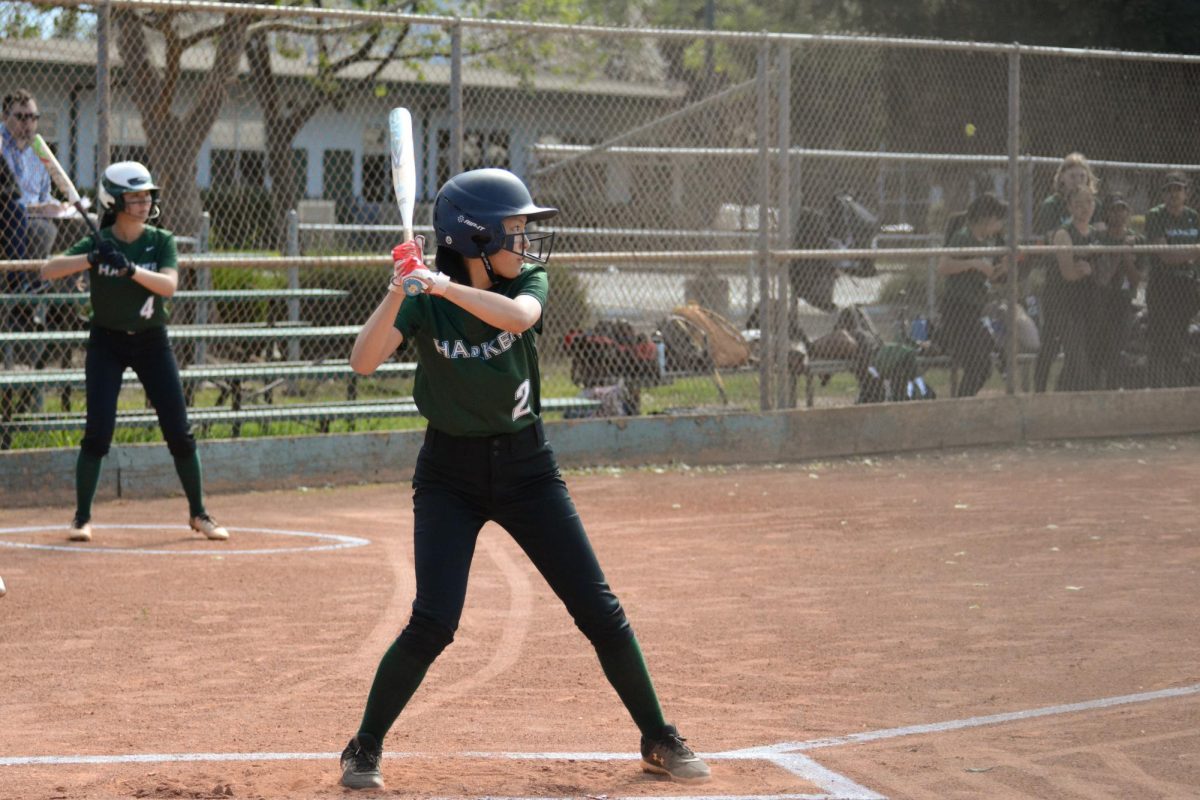
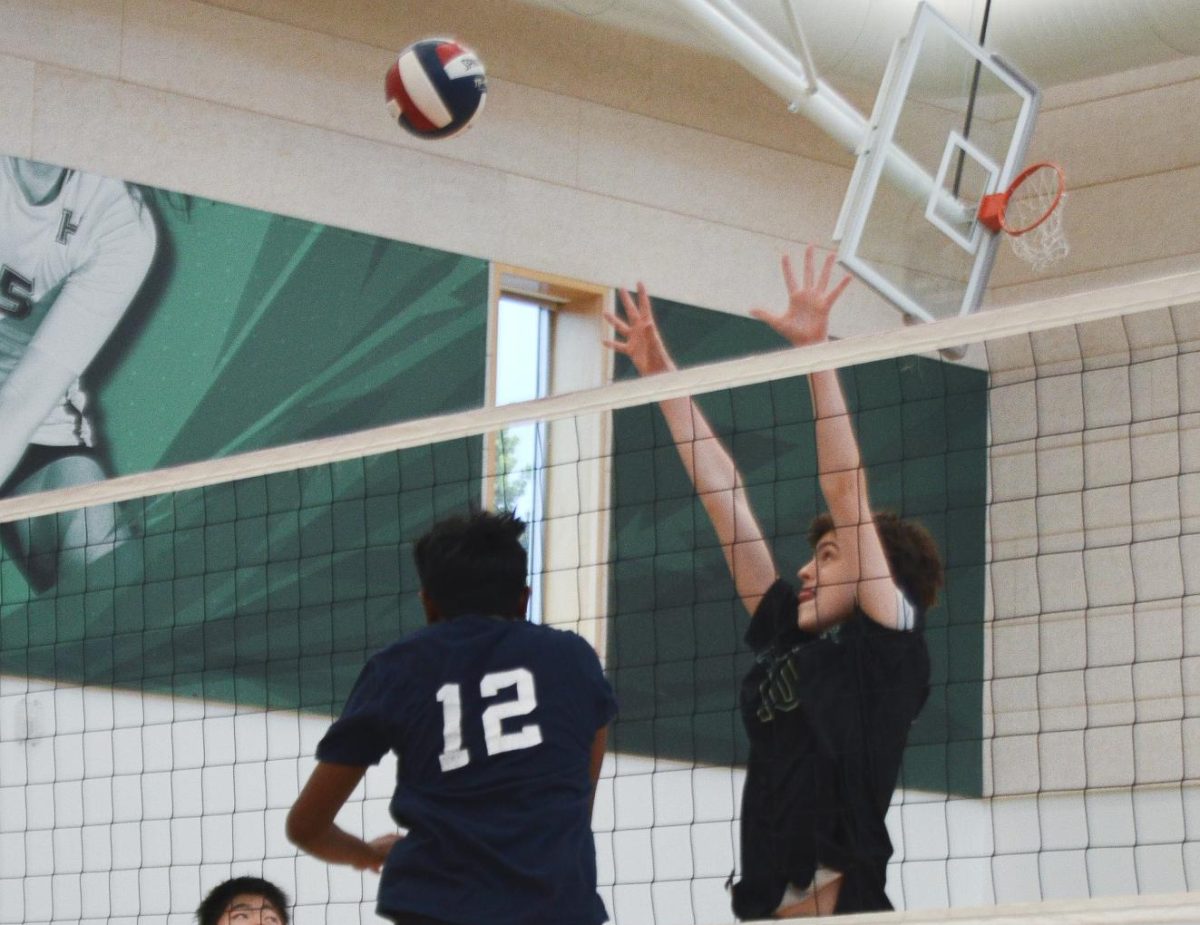



























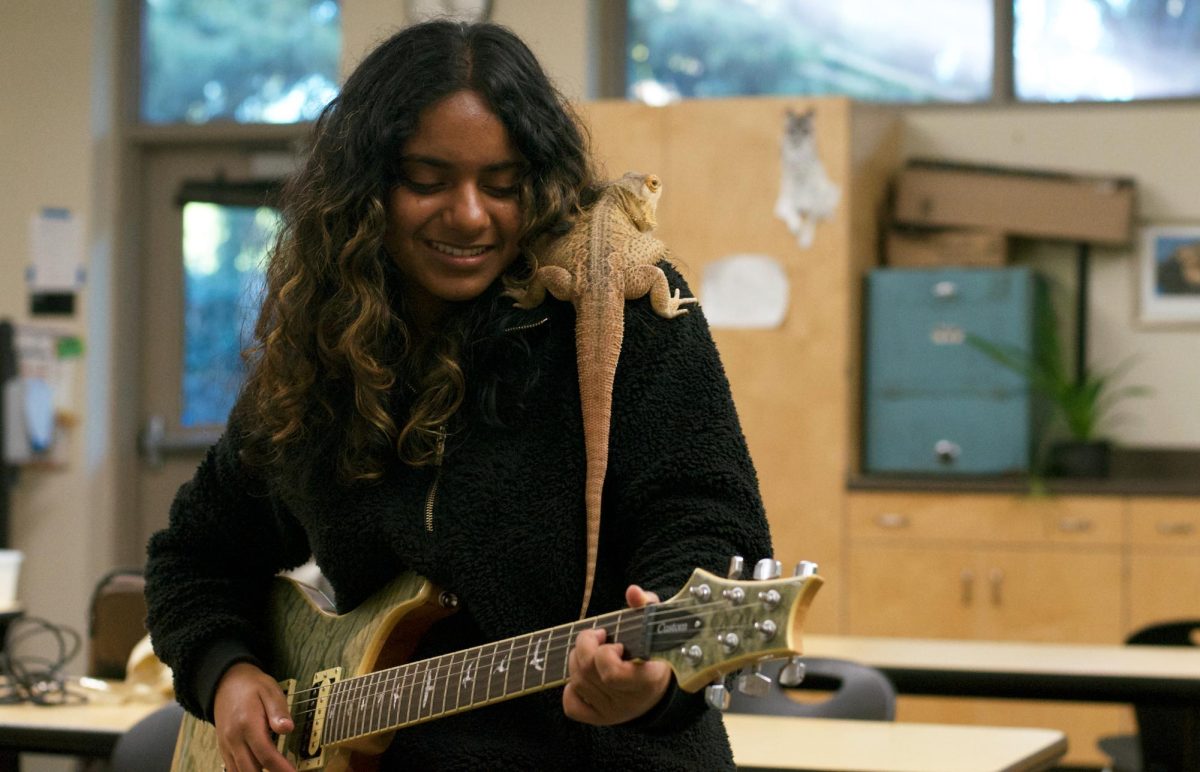
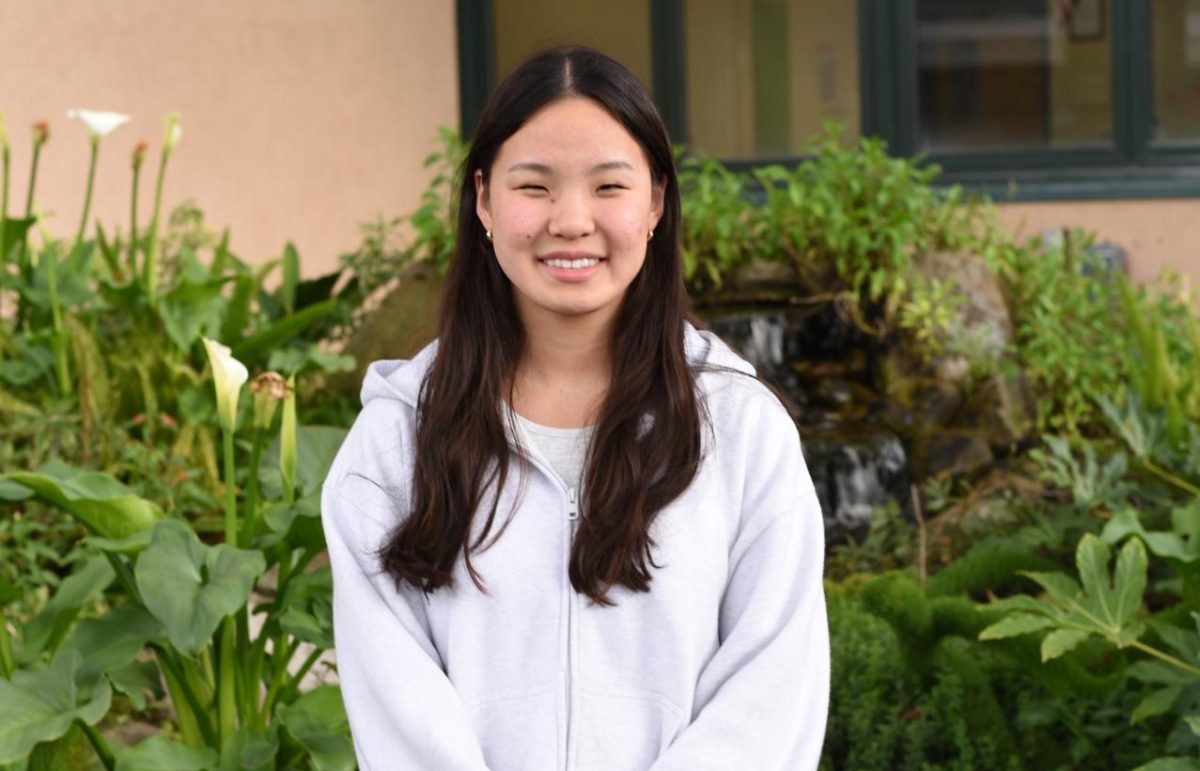

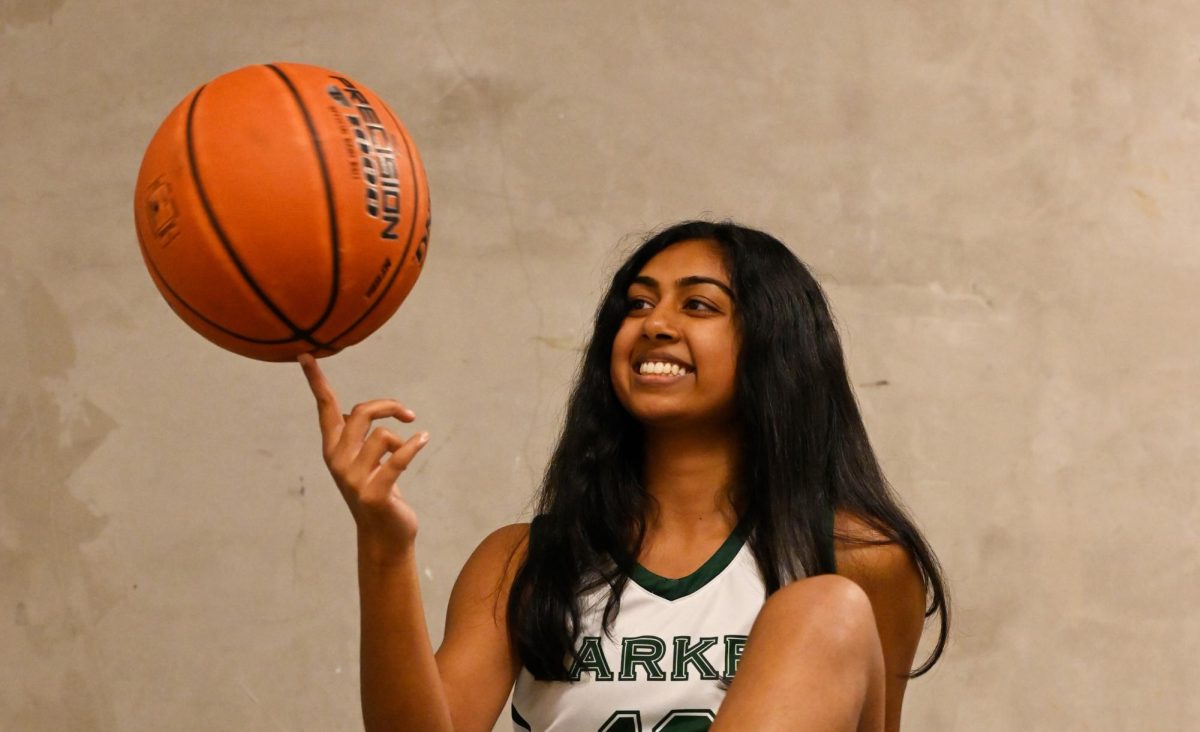










![“[Building nerf blasters] became this outlet of creativity for me that hasnt been matched by anything else. The process [of] making a build complete to your desire is such a painstakingly difficult process, but Ive had to learn from [the skills needed from] soldering to proper painting. Theres so many different options for everything, if you think about it, it exists. The best part is [that] if it doesnt exist, you can build it yourself, Ishaan Parate said.](https://harkeraquila.com/wp-content/uploads/2022/08/DSC_8149-900x604.jpg)


![“Animation just clicked in a way. I had been interested in art, but that felt different. [Animation] felt like it had something behind it, whereas previous things felt surface level. I wasnt making that crazy of things, but just the process of doing it was much more enjoyable, Carter Chadwick (22) said.](https://harkeraquila.com/wp-content/uploads/2022/08/Screen-Shot-2022-08-16-at-9.44.08-AM-900x598.png)


![“When I came into high school, I was ready to be a follower. But DECA was a game changer for me. It helped me overcome my fear of public speaking, and its played such a major role in who Ive become today. To be able to successfully lead a chapter of 150 students, an officer team and be one of the upperclassmen I once really admired is something Im [really] proud of,” Anvitha Tummala (21) said.](https://harkeraquila.com/wp-content/uploads/2021/07/Screen-Shot-2021-07-25-at-9.50.05-AM-900x594.png)



![“[Volleyball has] taught me how to fall correctly, and another thing it taught is that you don’t have to be the best at something to be good at it. If you just hit the ball in a smart way, then it still scores points and you’re good at it. You could be a background player and still make a much bigger impact on the team than you would think,” Anya Gert (’20) said.](https://harkeraquila.com/wp-content/uploads/2020/06/AnnaGert_JinTuan_HoHPhotoEdited-600x900.jpeg)

![“Im not nearly there yet, but [my confidence has] definitely been getting better since I was pretty shy and timid coming into Harker my freshman year. I know that theres a lot of people that are really confident in what they do, and I really admire them. Everyones so driven and that has really pushed me to kind of try to find my own place in high school and be more confident,” Alyssa Huang (’20) said.](https://harkeraquila.com/wp-content/uploads/2020/06/AlyssaHuang_EmilyChen_HoHPhoto-900x749.jpeg)













![“My slogan is ‘slow feet, don’t eat, and I’m hungry.’ You need to run fast to get where you are–you arent going to get those championships if you arent fast,” Angel Cervantes (12) said. “I want to do well in school on my tests and in track and win championships for my team. I live by that, [and] I can do that anywhere: in the classroom or on the field.”](https://harkeraquila.com/wp-content/uploads/2018/06/DSC5146-900x601.jpg)

![“I think getting up in the morning and having a sense of purpose [is exciting]. I think without a certain amount of drive, life is kind of obsolete and mundane, and I think having that every single day is what makes each day unique and kind of makes life exciting,” Neymika Jain (12) said.](https://harkeraquila.com/wp-content/uploads/2017/06/Screen-Shot-2017-06-03-at-4.54.16-PM.png)






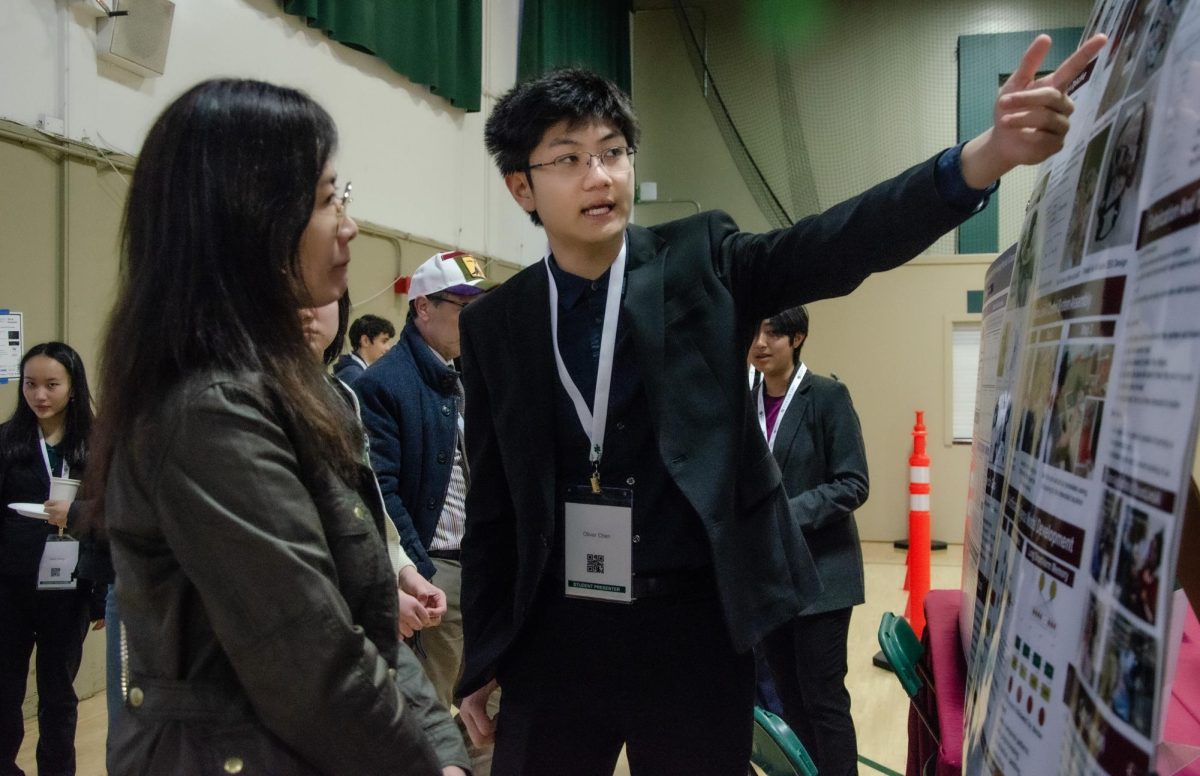

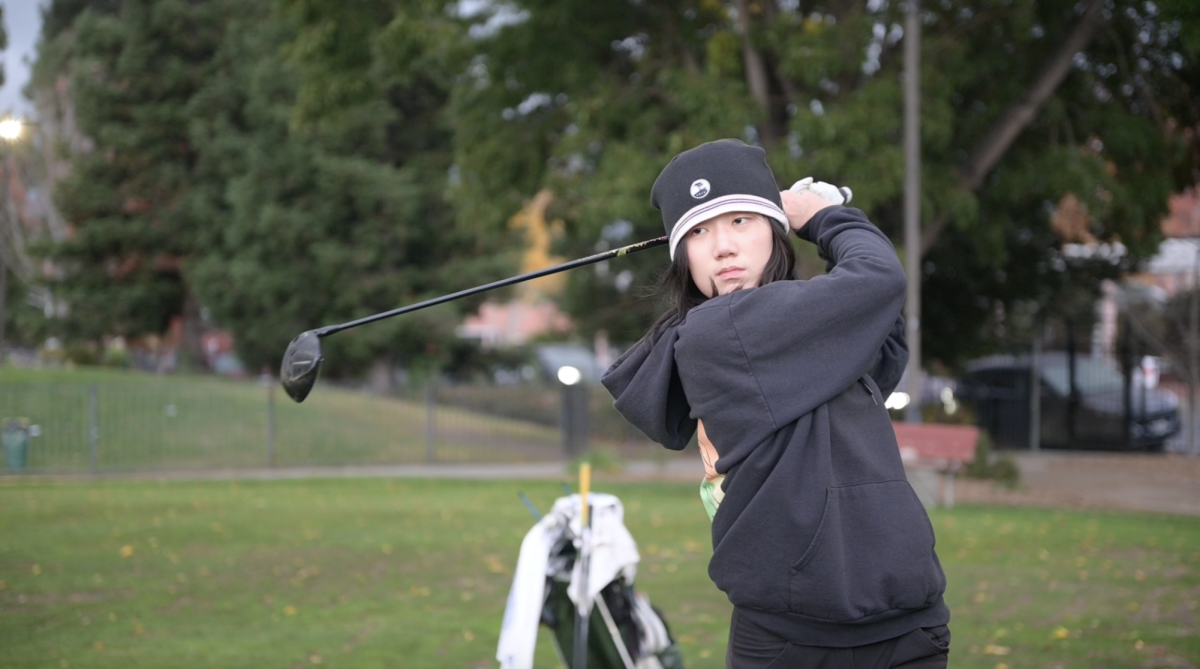

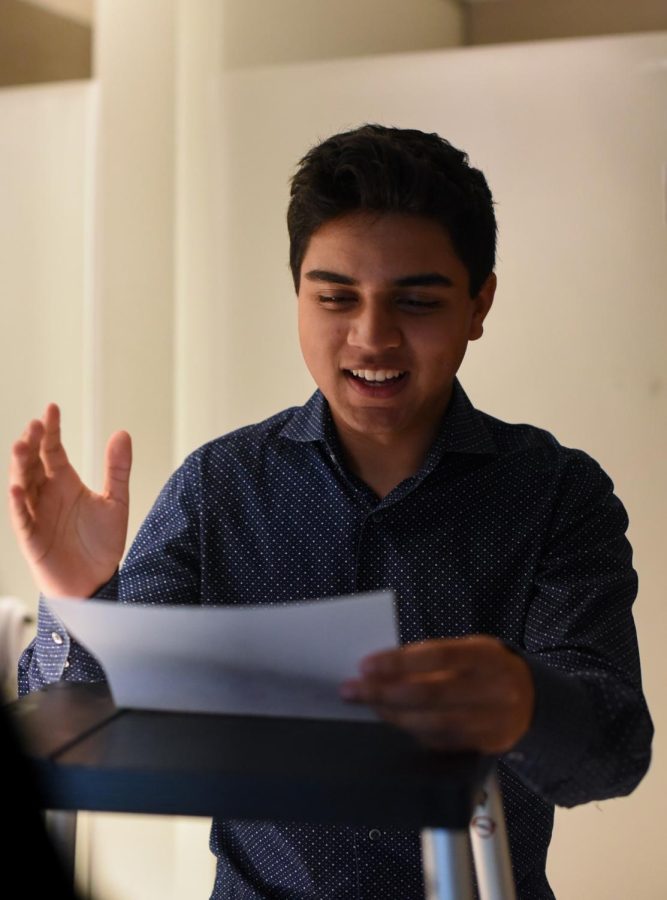
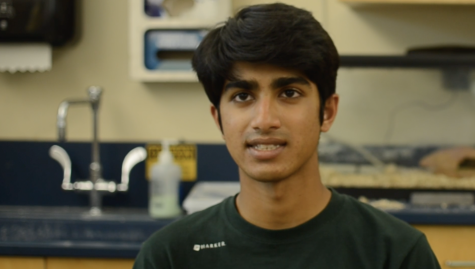
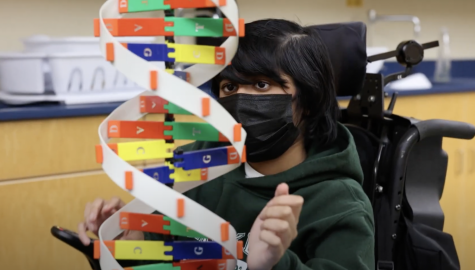
![“[Building nerf blasters] became this outlet of creativity for me that hasnt been matched by anything else. The process [of] making a build complete to your desire is such a painstakingly difficult process, but Ive had to learn from [the skills needed from] soldering to proper painting. Theres so many different options for everything, if you think about it, it exists. The best part is [that] if it doesnt exist, you can build it yourself, Ishaan Parate said.](https://harkeraquila.com/wp-content/uploads/2022/08/DSC_8149-475x319.jpg)
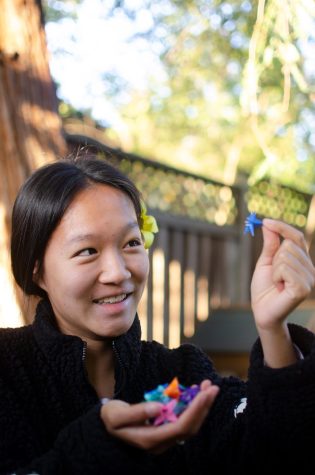

![“Animation just clicked in a way. I had been interested in art, but that felt different. [Animation] felt like it had something behind it, whereas previous things felt surface level. I wasnt making that crazy of things, but just the process of doing it was much more enjoyable, Carter Chadwick (22) said.](https://harkeraquila.com/wp-content/uploads/2022/08/Screen-Shot-2022-08-16-at-9.44.08-AM-475x316.png)

![My favorite thing is being able to immerse yourself in [dance]. Its one thing where you can really see improvement if you put in the practice, and if you dont put in the practice you wont improve. The ability to sync into repetition and go into the same counts over and over again to see some improvement is really captivating, and always draws me back to it, Zeel Thakkar (22) said.](https://harkeraquila.com/wp-content/uploads/2022/08/DSC_8147-475x315.jpg)
![“It’s the mind bending things that I’m really passionate about, the things where youre like, ‘I have no idea why this happens, but I want to figure that out.’ It’s a genuine, ‘I don’t get it, but I want to.’ Or perhaps it’s [that] I don’t want to never understand it. I don’t want to have a topic that I dont understand and never understand it, Spencer Cha (22) said.](https://harkeraquila.com/wp-content/uploads/2022/08/spencerchahoh_ireneyuan-475x317.jpg)
